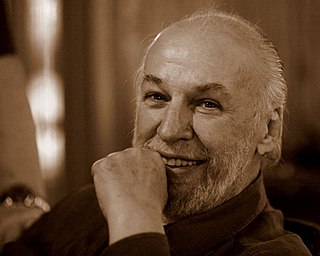A Quote by Noam Chomsky
In fact, it's pretty dramatic when you get to 1975, very revealing, the [Vietnam] war ends. Everybody had to write something about the war, what it meant. You also had polls of public opinion, and they're dramatically different.
Related Quotes
I have looked at public opinion polls in France in the late 1940s and early 1950s during the height of Marshall Plan aid. They had a very negative attitude towards the United States then. There were negative attitudes towards the United States because of Vietnam. There were negative attitudes about the United States when Reagan wanted to deploy intermediate range ballistic missiles. I don't think the president should base his foreign policy on American public opinion polls, let alone foreign public opinion polls.
Why did the people think [Vietnam war] was fundamentally wrong and immoral? The guys who ran the polls, John E. Rielly, a professor at the University of Chicago, a liberal professor, he said what that means is that people thought too many Americans had being killed. Another possibility is they didn't like the fact that we were carrying out the worst crime since the Second World War. But that's so inconceivable that wasn't even offered as a possible reason.
Truman fired the popular Gen. Douglas MacArthur because he disobeyed orders in the Korean War. Johnson knew that he had reached the endgame in Vietnam when Gen. William Westmoreland, the top commander in Vietnam, requested 240,000 more troops in 1968 for the prolonged war that also could not be won.
Possibly my hatred of war blinds me so that I cannot comprehend the arguments they adduce. But, in my opinion, there is no such thing as a preventive war. Although this suggestion is repeatedly made, none has yet explained how war prevents war. Worse than this, no one has been able to explain away the fact that war creates the conditions that beget war.
The Philippines and the U.S. have had a strong relationship with each other for a very long time now. We have a shared history. We have shared values, democracy, freedom, and we have been in all the wars together in modern history, the World War, Second World War, Cold War, Vietnam, Korea, now the war on terrorism.
Most of us who were opposed to the war, especially in the early '60's - the war we were opposed to was the war on South Vietnam which destroyed South Vietnam's rural society. The South was devastated. But now anyone who opposed this atrocity is regarded as having defended North Vietnam. And that's part of the effort to present the war as if it were a war between South Vietnam and North Vietnam with the United States helping the South. Of course it's fabrication. But it's "official truth" now.
I realize that my opinion is my opinion, not everybody has to believe it and I never tried to shove anything down anyone's throat, but I was willing to take that to the trenches if you know what I mean. I took that opinion to the wall, often in public, often had to... I often had to fight in public with the very same people who I was trying to convince to play my records!


































